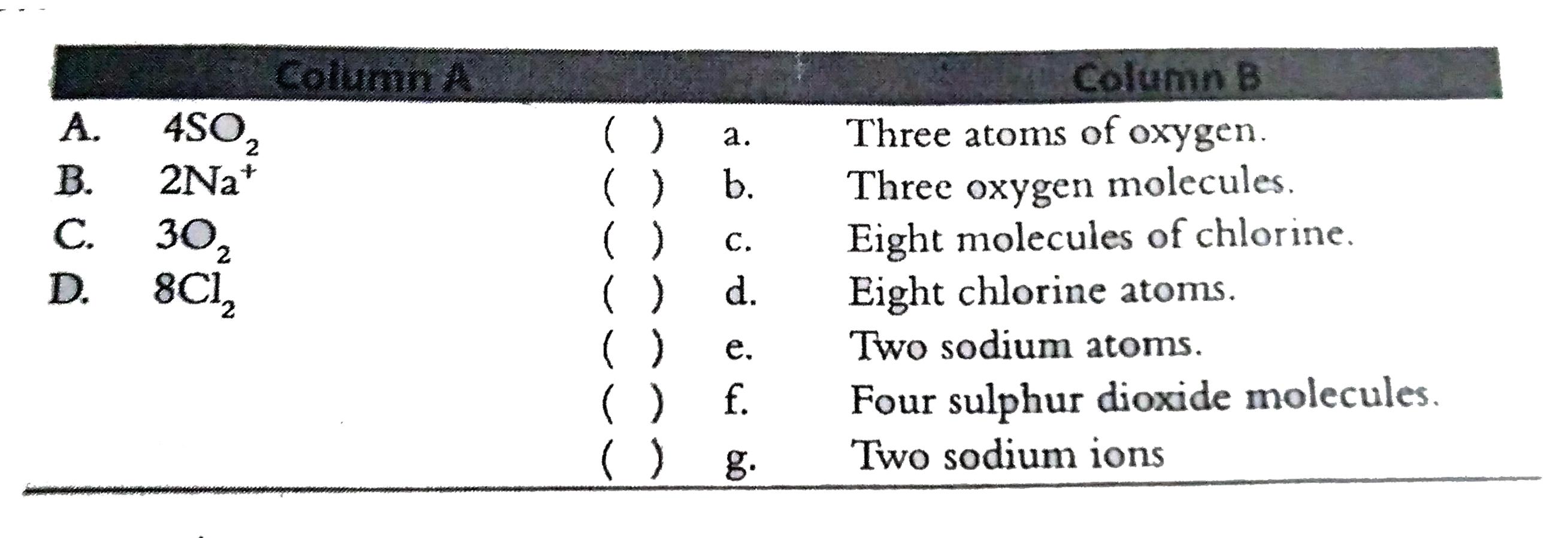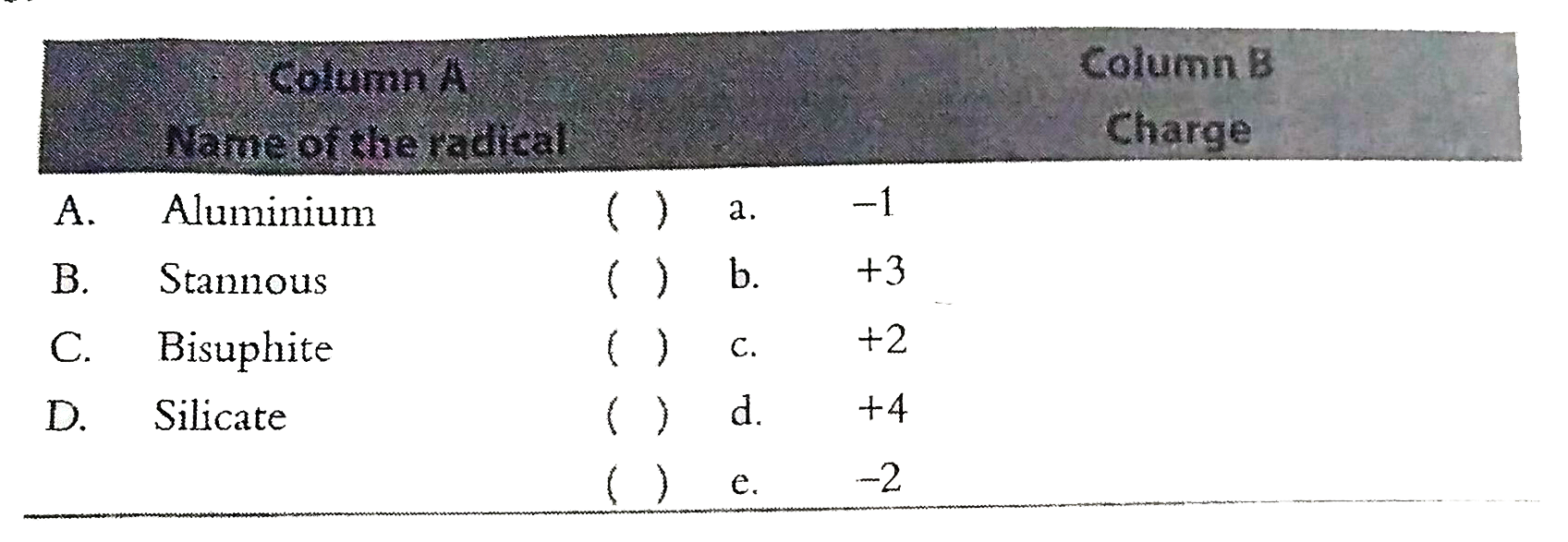Complete Solutions to CONCEPT APPLICATION Level -1 of chapter ATOMIC STRUCTURE AND TRANSFORMATION OF MATTER of Class 7 book with complete answers and questions
| Class 7 | CHEMISTRY |
| Chapter | ATOMIC STRUCTURE AND TRANSFORMATION OF MATTER |
| PEARSON IIT JEE FOUNDATION | CONCEPT APPLICATION Level -1 |
| Number Of Questions | 39 |
| Academic Year | 2023-24 |
The number of electrons in second shell of a metal with three valence electrons in the third shell is eight.
01:42View SolutionThe valency of helium is zero.
01:28View SolutionThe name of `CrO_(4)^(-2)` radical is dichromate ion.
01:30View SolutionRusting of iron is an example of both physical and chemical change.
02:16View SolutionSublimation of camphor is a physical change.
01:41View SolutionThe central part of the atom called nucleus accounts for the mass of an atom.
01:57View SolutionBoth protons and neutrons possess the same magnitude of charge but opposite signs.
01:59View SolutionThe maximum number of electrons in L shell is two.
01:50View SolutionAn atom is electrically neutral .
01:22View SolutionIn phosphide ion , the total number of electrons is equal to 12.
01:57View SolutionThe symbol of cobalt is _______.
01:52View SolutionThe mass of an electron is _______ times that of mass of a proton.
02:41View SolutionThe maximum number of electrons that can be accommodated in the outermost orbit is equal to _______.
02:09View SolutionThe valency of argon is ________.
01:42View SolutionIn the formation of sodium chloride , each chlorine gains_________ electron.
01:48View SolutionThe formula of a zincate radical is _________.
01:41View SolutionThe combining capacity of the metal which can exhibit more than one valency is called___________.
02:37View SolutionBalackening of silverware is a ____________ change.
02:41View Solution`2HOCl to2HCl+O_(2)` is a ____________ decomposition reaction.
01:50View SolutionAtomic number of a metal having 12 neutrons and mass number 23 is __________ .
02:02View SolutionThe nucleus consists of
01:53View SolutionThe maximum number of electrons that can be accommodated in an orbit is equal to __________ where n is the number of orbits.
02:02View SolutionAmong the noble gases which gas does not have octet configuration?
02:22View SolutionWhich among the following pairs of elements forms cation and anion respectively ?
02:03View SolutionWhich is a negative a radical among the following ?
01:22View SolutionWhich among the following reactions is not balanced ?
02:57View SolutionAmong the following reactions , identify the synthesis reaction.
View SolutionIdentify a useful change among the following chemical changes.
01:58View SolutionWhich among the following is not a characteristic of a physical change?
02:06View SolutionAmong the following types of chemical reactions,application of metal reactivity series is involved with which reaction?
02:18View SolutionIf a solid non-metal X forms oxide of type `X_(2)O_(5)`,then the formula of its corresponding chloride is ___________ .
01:56View SolutionIf the formula of a metal nitrite is `M(NO_(2))_(2.)`, then the formula of its dihydrogen phosphate is
01:40View SolutionIdentify the number of neutrons present in a pair of elements with atomic numbers 20 and 13, if their mass numbers are 40 and 27, respectively.
02:52View SolutionHeating solid ammonium chloride involves change in the ___________.
02:14View SolutionWhich of the following is a chemical change ?
02:24View SolutionArrange the following sequence in order to derive the formula of zine oxide.
(a) The valencies of ions formed by zine and oxygen are written below without positive and negative sign.
(b) The positive ion that is `Zn^(+2)` followed by the negative ion , that is oxide `(O^(-2)` ion are written with ther charges.
(c ) The valencies of zinc and oxide ion have common factors and hence they are divided by their highest common factor.
(d) The magnitude of valencies of the ions should be interchanged and written as subscripts on right side of the respective ions.View Solution View Solution
View Solution View Solution
View Solution View Solution
View Solution
CONCEPT APPLICATION Level -1 questions and complete solutions for chapter ATOMIC STRUCTURE AND TRANSFORMATION OF MATTER of PEARSON IIT JEE FOUNDATION of Class 7
